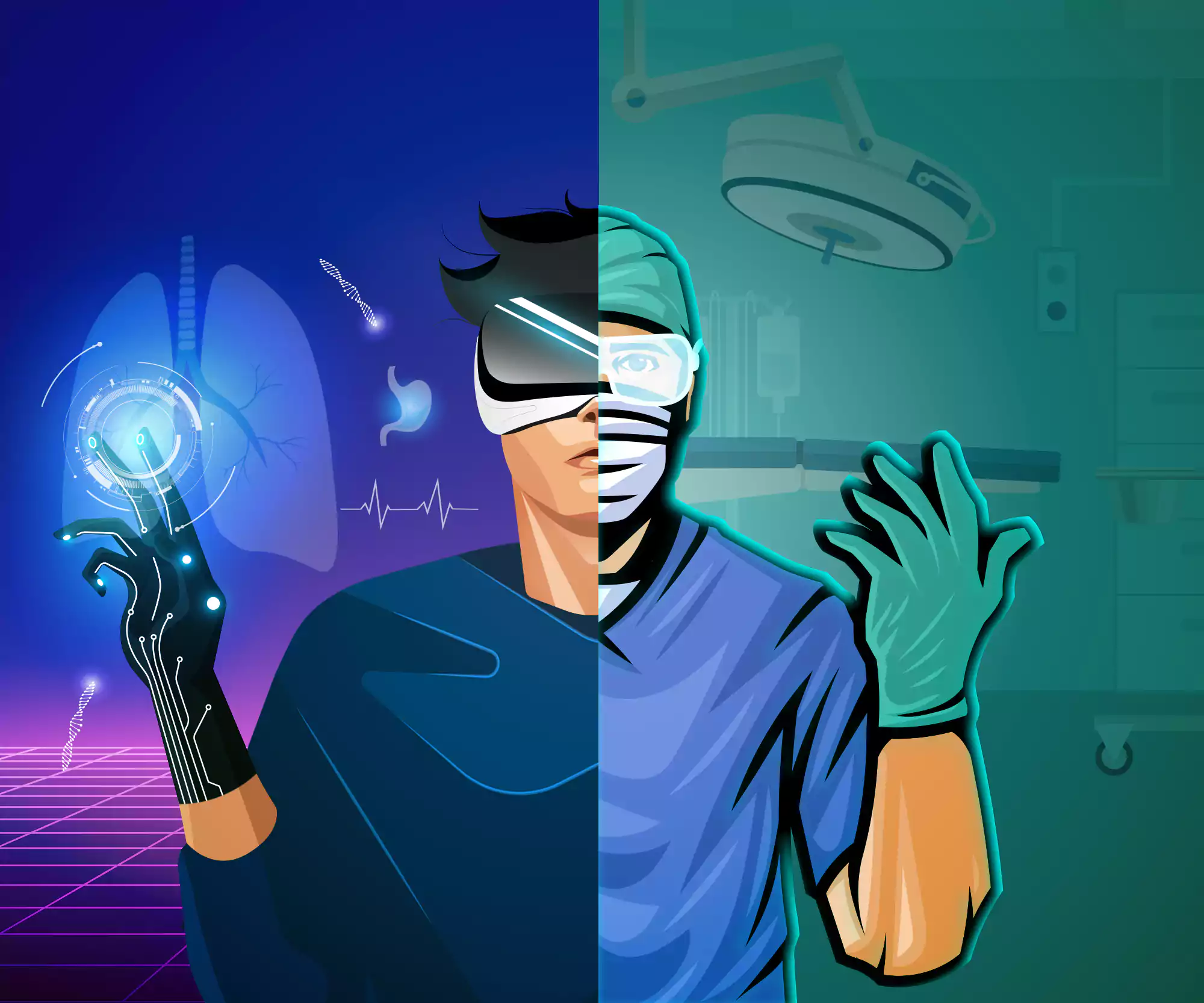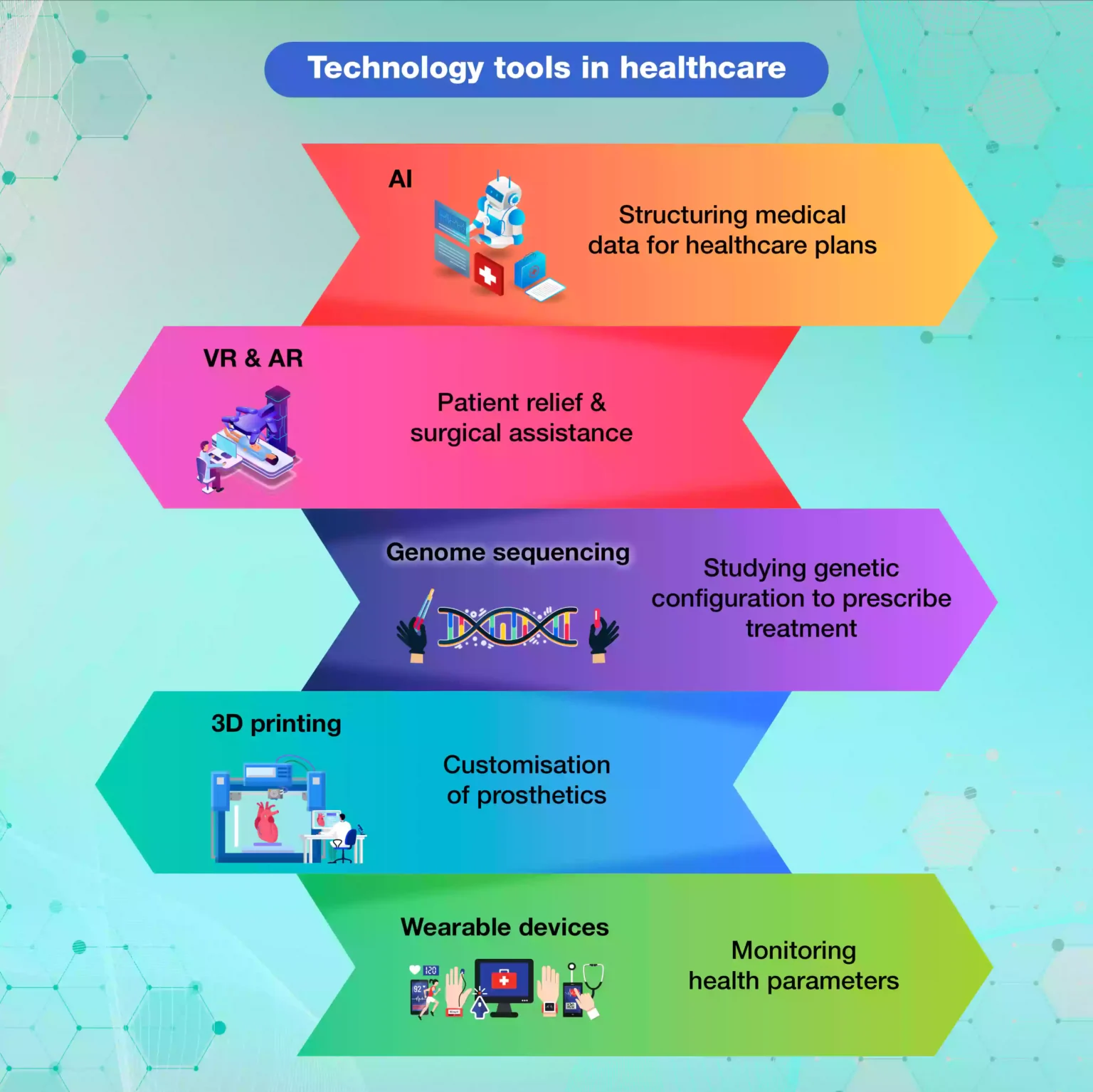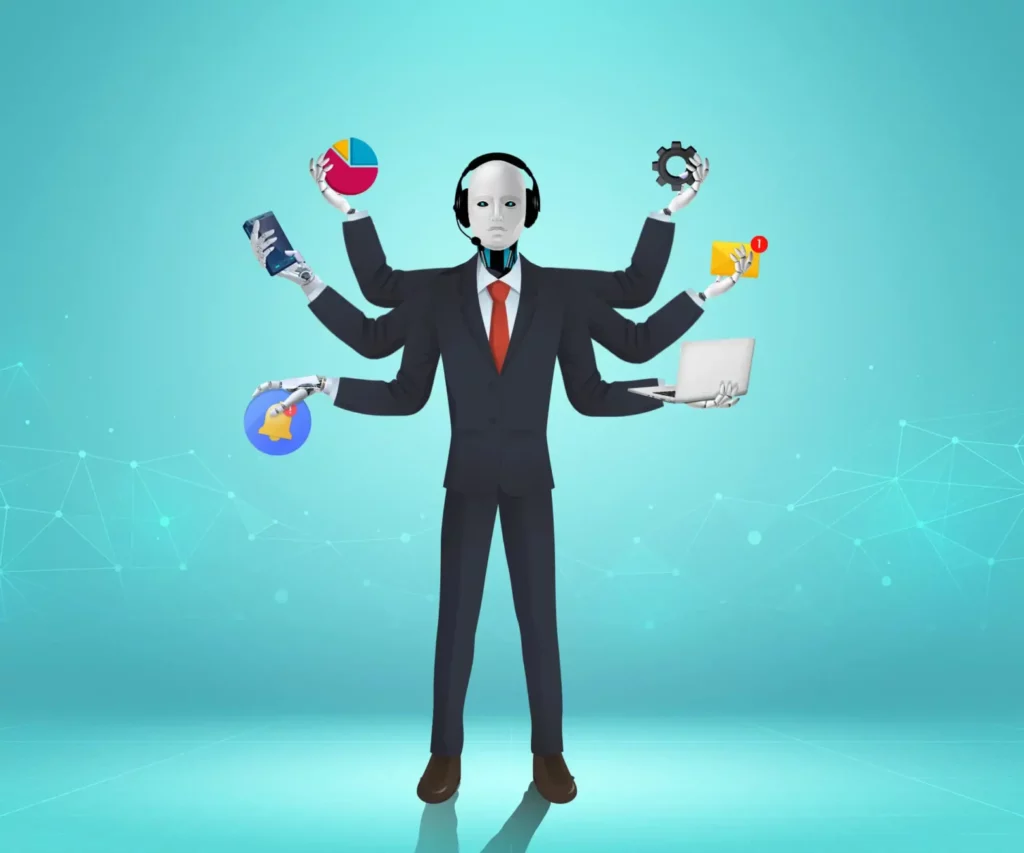
With the advancements in technology, it was inevitable that healthcare, too, would get impacted. What was once only a sci-fi fantasy is now as good as commonplace reality. Yet, are all of these good things? Or is there also a dark side to this moon? Read on to learn more about how technology is transforming healthcare.
1) Artificial Intelligence (AI)
Almost every industry now uses artificial intelligence, including healthcare. Sifting and structuring reams of data is one way in which AI is revolutionising medicine. Thus, AI helps solve healthcare’s perpetual problem: massive data that is not often systematically arranged. Moreover, known for being efficient and essentially error-free, by using AI, machine learning, and robotics, we can also move a step toward eliminating human error in the medical field.
AI is integral in redefining preventative medicine as well. For example, AI shows much promise in predicting pandemics and other disease outbreaks. Furthermore, medical personnel can use AI to create healthcare plans for individuals by charting and mapping their medical histories and lifestyles. For example, Google’s DeepMind is an AI system that can predict the occurrence of breast cancer. DeepMind has already surpassed human performance by a fair margin. Additionally, AI’s use in designing treatment plans accelerates the development and testing of medicines. A 2015 start-up named Atomwise, for example, is using AI technology to treat the Ebola virus disease.
2) VR and AR
As we had mentioned in a previous article, the uses of virtual and augmented realities in healthcare are quite significant. For example, virtual reality, with its ability to offer immersive experiences to users by engaging their senses, is useful in pain management. VR headsets, for example, can immerse convalescent patients in a soothing environment. In addition to pain management, it is possible to use VR in stress management and to help with anxiety.
As for the doctor’s side of things, surgeons can use VR to practise complex procedures and as a training tool for surgical aspirants. A study revealed that VR-trained surgeons performed significantly better than their traditionally-trained colleagues. Talk about ‘cutting edge’! Moreover, XR—a mix of VR and AR—makes surgeries safer and more efficient. AR is already facilitating remote surgical expertise. Beyond telemedicine, Virtual Interactive Presence in Augmented Reality (VIPAR) enables surgeons to intervene in complex procedures that may require assistance. They can project their hands in real-time using the AR display, allowing them to offer aid to peer surgeons and facilitating a higher success rate. This technology also helps medical care providers in training their students.

3) Genome sequencing
Another groundbreaking technology transforming medicine is gene sequencing and editing, which offers a window into deep family histories. With this information, experts can determine a person’s harmful genes. These harmful genes may make them prone to certain diseases and drug sensitivities. More knowledge of an individual’s genetic composition can help them choose the most effective treatment plan. In the field of nutrition, this technology can help chalk out the perfect diet plan for a person based on their molecular makeup.
4) 3D printing
3D printing or additive manufacturing is ushering in many wonders in all healthcare aspects. As we had indicated earlier, with 3D printing technology, hardly anything is unconquered. Printing tissue, blood vessels, prosthetics, and even entire organs is now possible. Moreover, even medicines like pills, tablets, and surgical tools that are more efficient and easier to use are printable. These advances have led to the use of more robust and safer products.
Surgeons and healthcare providers can also cater to patients better by offering customised prosthetics for each individual, depending on their preferences. Likewise, the patients’ ability to acclimate and interact with the prosthetic will also improve if it is designed especially for their anatomy.
5) Wearable devices
As technology becomes omnipresent and our lifestyles mould around it, wearable health trackers, sensors, and devices are all the rage. Putting one’s health in one’s own hands and empowering people to take better care of themselves, this technology promotes healthcare by recording and analysing their fitness routines. Whether monitoring sleep patterns, encouraging workouts, chalking out diet plans, or measuring heart rates, wearable devices are waking us up to the importance of self-care. They can help improve our focus or cognitive abilities and help manage stress levels. These devices also come with the provision of doing check-ups from the comforts of our homes and sharing the results of tests with consultant doctors remotely. In addition, wearable ECG monitors, blood pressure monitors, and the like digitise how health is practised, making ‘health’ an uber-cool lifestyle choice.
Thus, technological advances have facilitated many medical breakthroughs, through extensive research and advanced innovations. Always in constant flux, the industry is not what it was a decade ago. And what the next decade may bring is anyone’s guess, but the possibilities seem endless!


